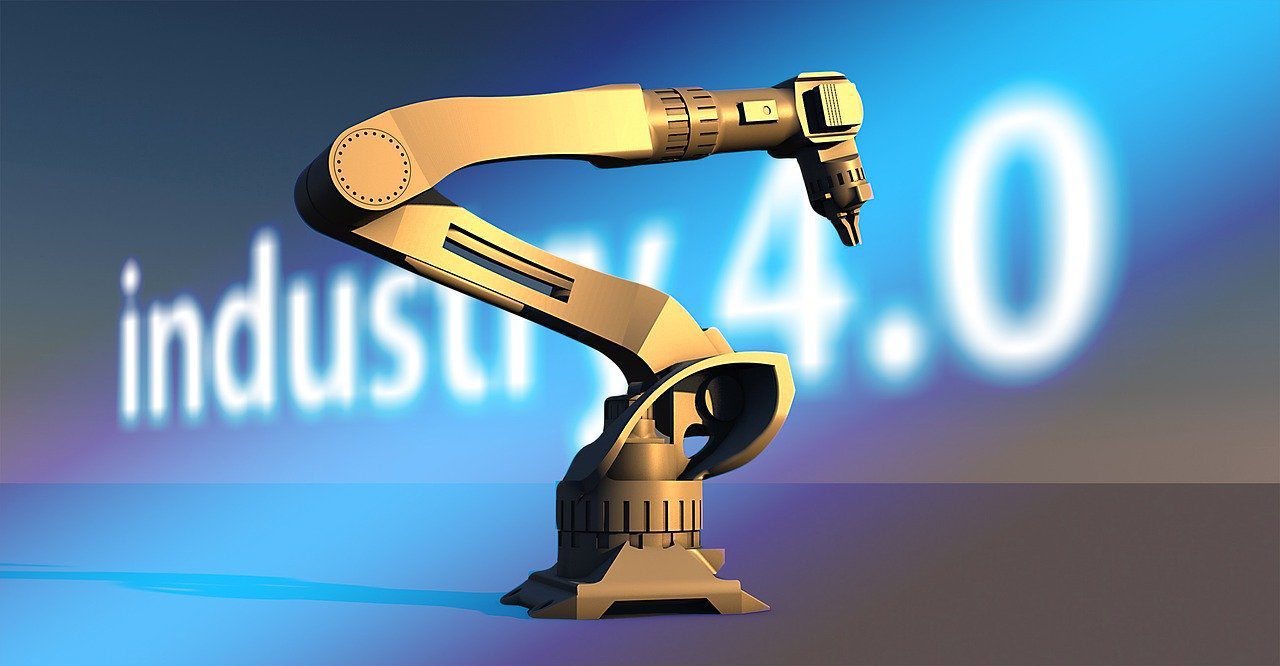Industry 4.0 is a popular term to describe the digitisation of manufacturing – what is essentially the Fourth Industrial Revolution. It’s also a new way of working in manufacturing that encompasses the latest in digital technology. A crucial aspect of Industry 4.0 is a future-forward focus in manufacturing that includes embracing the latest technological advances like automation.
Industry 4.0 before the lockdown
Industry 4.0 supports manufacturers moving towards smart products and processes with digitally connected equipment in smart factories. Smart factories don’t just allow for improvements to the manufacturing process itself. A true smart factory takes advantage of all the benefits digitisation has to offer, including newer and smarter ways of gathering and using data.
Industry 4.0 is an exciting prospect for manufacturing, leading to faster, cleaner, and more cost-effective ways to produce products. However, before lockdown, the UK lagged behind with adopting automation and robotics – a key component of Industry 4.0. Despite the barriers facing some manufacturers, most are in agreement that Industry 4.0 will bring many positive changes to the industry.
What problems will manufacturers face after lockdown?
Manufacturers not producing essential products will have closed for lockdown, or at the very least, will have reduced production to assist with implementing social distancing measures.
The newer, slightly relaxed lockdown measures since 10th May actively encouraged people who could not work from home to return to work. However, many businesses are still facing significant challenges around keeping employees safe and socially distanced without also dramatically impairing production capacity. With social distancing measures of some kind likely to remain for some time, many manufacturers will have to increase lead times for orders for the foreseeable future, which could hit their bottom line.
Suppliers and distributors are likely to have faced challenges themselves. Some may not have survived the lockdown. This will make it difficult for some manufacturers to get raw materials to produce the products or to get the products distributed.
Increased interest in particular products like home gym products may see some manufacturers under pressure to produce at speed – which may not be possible without automation while the workforce is socially distancing. Yet others will be affected by downturns in demand brought about by profound changes to people’s living and working habits, some of which could become long-term.
Almost all manufacturing businesses have faced challenges at some time with supply, demand, or workforce availability. However, the situation immediately before and during lockdown saw all three of these things happen at the same time – on a global scale. Chances are, these issues won’t be immediately resolved as lockdown is lifting.
How does Industry 4.0 fit into the post-lockdown landscape?
We were already experiencing increased interest in greener, cleaner manufacturing methods, and products before lockdown began. But since lockdown started, satellite images of industrial areas under lockdown have shown incredible improvements in air pollution. The Committee on Climate Change have urged the government to keep a key focus on six climate change principles after lockdown, and several aspects of Industry 4.0 reduce waste and ensure greener manufacturing methods.
Post-lockdown, most businesses will be more aware of and prepared for a crisis that means that their human workers are unable to work. Industry 4.0 can reduce the numbers of people needed on the factory floor, and could potentially allow some employees to work from home analysing data and even running remote diagnostics – reducing the number of repairs and engineers required on the factory floor.
Businesses who adopt Industry 4.0 standards are generally more agile and can adapt quickly to changes by adjusting the volumes produced without necessarily ramping up their human resources. Fluctuations in demand can be more easily addressed with a smart factory. Plus, with robust data modelling and machine learning, smarter plans can be made for variations in demand.
Innomech are recognised as one of the UK’s leading automation specialists, working with businesses of all sizes from established FTSE 100 companies to start-ups. We can support your business to become more future-proofed by helping you implement automation.




